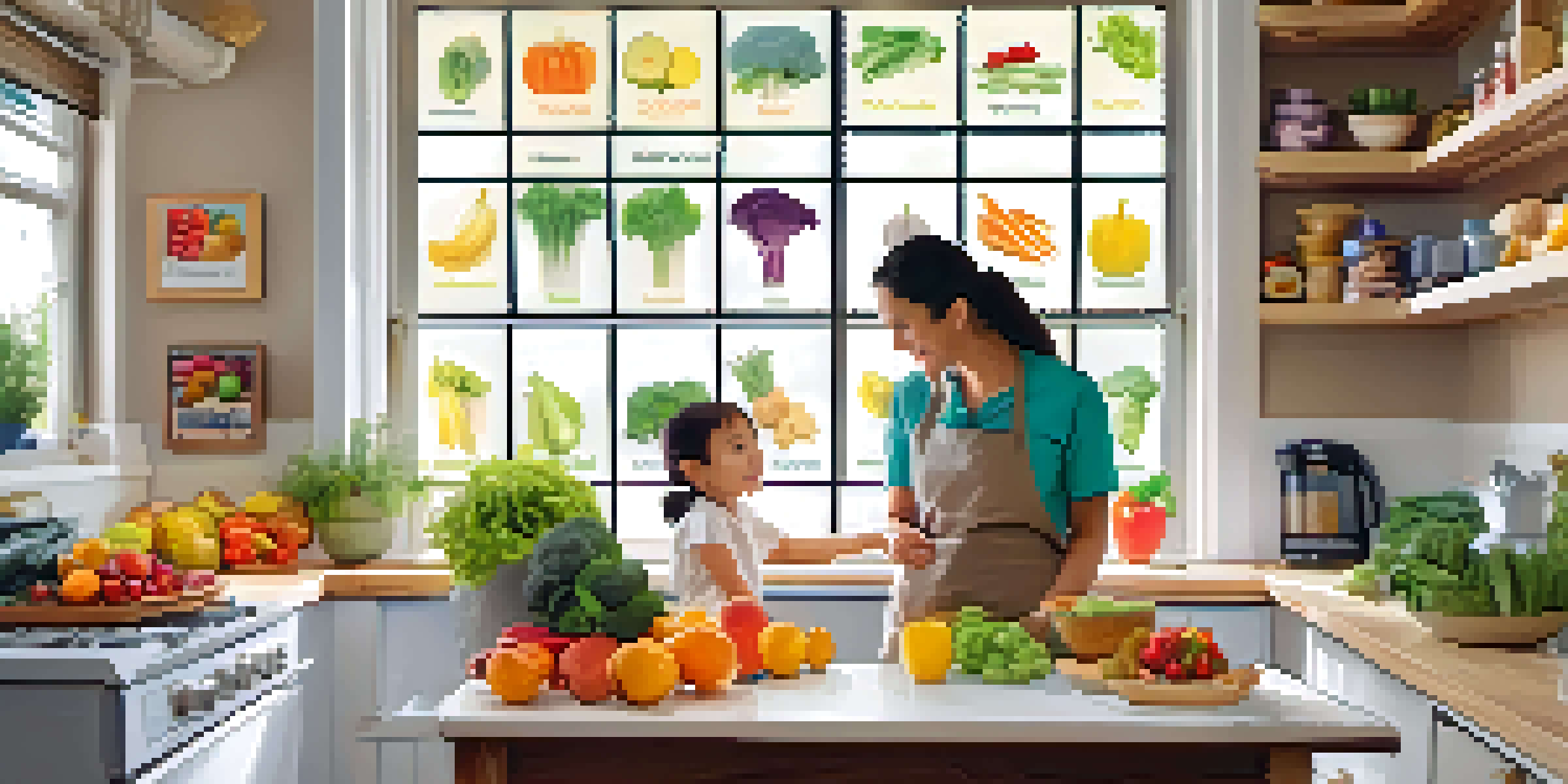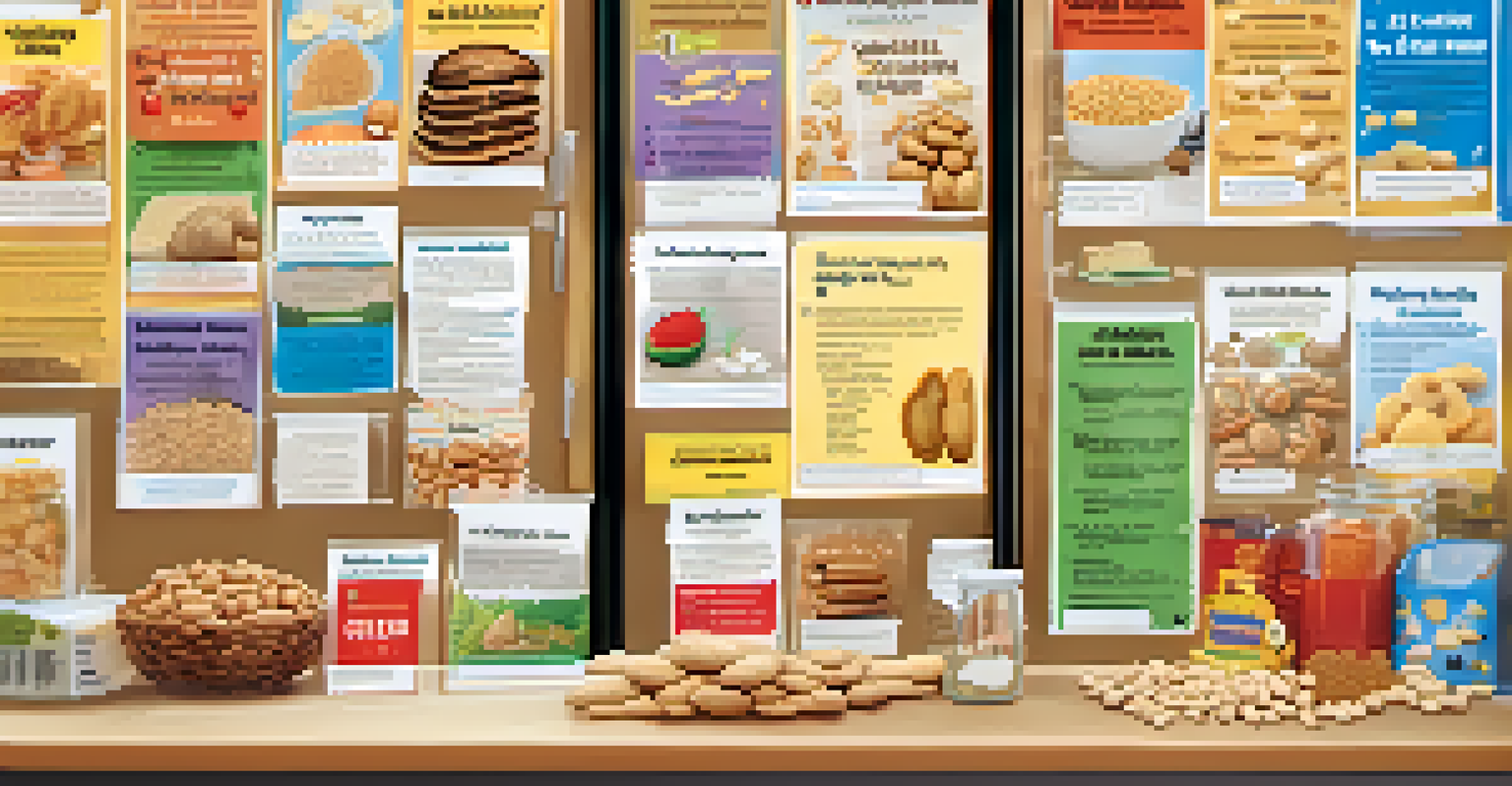Effective Communication About Food Allergies for Caregivers

Understanding Food Allergies: A Caregiver's Essential Guide
Food allergies can be life-threatening, making it crucial for caregivers to understand them. Each allergy can trigger different reactions, from mild hives to severe anaphylactic shock. Knowing the specifics of the allergies you're dealing with will empower you to communicate effectively with others.
An ounce of prevention is worth a pound of cure.
A solid grasp of food allergies includes recognizing common allergens like peanuts, tree nuts, dairy, and gluten. Being informed helps you advocate for your loved ones, ensuring their dietary needs are met. This knowledge also sets the foundation for clear communication with schools, restaurants, and events.
Remember, the more informed you are, the more confidently you can share this information with others. When caregivers understand food allergies, they can better support those in their care, fostering a safer and more inclusive environment.
Creating a Clear Communication Plan with Caregivers
Developing a communication plan is a proactive way to address food allergies. This includes discussing the allergies with everyone involved in the individual’s care, such as family members, friends, and teachers. A well-structured plan can prevent misunderstandings and ensure everyone is on the same page.

Start by documenting the allergies and potential symptoms of reactions. This information can be shared in a simple, accessible format, like a checklist or a card. By keeping this information handy, you can easily communicate important details to those who may need it in an emergency.
Understand Allergies for Safety
Knowing common allergens and their effects empowers caregivers to advocate effectively for those in their care.
Regular check-ins with caregivers and other stakeholders can help reinforce the importance of the plan. It’s essential to keep everyone informed about any changes in allergies or treatment strategies, ensuring a united front in managing food allergies.
Using Simple Language to Explain Food Allergies
When discussing food allergies, simplicity is key. Avoid complex medical jargon that might confuse others; instead, use straightforward language. Explaining allergies in terms everyone can understand fosters better communication and awareness.
The best way to predict the future is to create it.
For example, instead of saying 'anaphylaxis,' you might say, 'a severe allergic reaction that can make it hard to breathe.' This way, you provide clear information without overwhelming your audience. Remember, the goal is to ensure that everyone involved knows how to respond appropriately.
Encouraging questions is also a great way to enhance understanding. When people feel comfortable asking about food allergies, they're more likely to remember the essential details and act accordingly in case of an emergency.
Utilizing Visual Aids for Better Communication
Visual aids can be powerful tools in communicating food allergies. Consider using charts, posters, or even smartphone apps to display essential information about allergens. These resources can help people quickly identify unsafe foods and reduce the risk of exposure.
For instance, a visual guide that lists common allergens alongside safe alternatives can be particularly useful in environments like schools or family gatherings. This approach not only educates but also engages others in the conversation about food allergies.
Create a Communication Plan
Establishing a clear communication plan helps everyone involved understand and manage food allergies collaboratively.
Additionally, using colors or symbols can make the information even more accessible. A simple color-coded system for allergies can help family members and caregivers quickly recognize what’s safe and what’s not, enhancing overall safety.
Empowering Individuals with Food Allergies to Speak Up
Encouraging individuals with food allergies to voice their needs is crucial. When they feel empowered to speak up, they can advocate for themselves in social settings. This independence fosters confidence and helps them manage their allergies proactively.
Teach them simple phrases to communicate their allergies clearly. For instance, 'I can't eat peanuts' or 'I have a dairy allergy, can you help me find a safe option?' This practice not only builds their confidence but also helps others understand the seriousness of their allergies.
Role-playing different scenarios can also be beneficial. Practicing how to approach a server at a restaurant or a new friend at a party can prepare them for real-life situations, making it easier for them to communicate their needs.
Fostering an Open Dialogue About Food Allergies
Open dialogue about food allergies creates a supportive environment for everyone involved. Encourage ongoing conversations about allergies, where caregivers and individuals alike can share experiences and concerns. This transparency promotes a culture of understanding and safety.
Consider organizing regular meetings or discussions with family and friends to talk about food allergy management. Sharing stories about challenges or successes can help everyone feel more connected and invested in ensuring safety.
Encourage Open Dialogue
Fostering open conversations about food allergies promotes understanding and a supportive environment for individuals with allergies.
Creating an atmosphere where questions are welcomed is vital. When discussing food allergies, make it clear that it’s okay to ask about anything, which fosters a sense of community and shared responsibility.
Staying Updated on Food Allergy Resources and Education
The landscape of food allergies is ever-evolving, making it essential for caregivers to stay updated on new information and resources. Regularly checking reputable websites, attending workshops, or joining support groups can provide valuable insights into managing food allergies effectively.
Engaging with communities, both online and offline, allows caregivers to share tips and learn from others' experiences. This exchange of information can lead to discovering novel approaches to food allergy management.

By staying informed, caregivers can better support those in their care and ensure that everyone remains safe. Continuous education about food allergies empowers caregivers and strengthens their ability to communicate effectively.